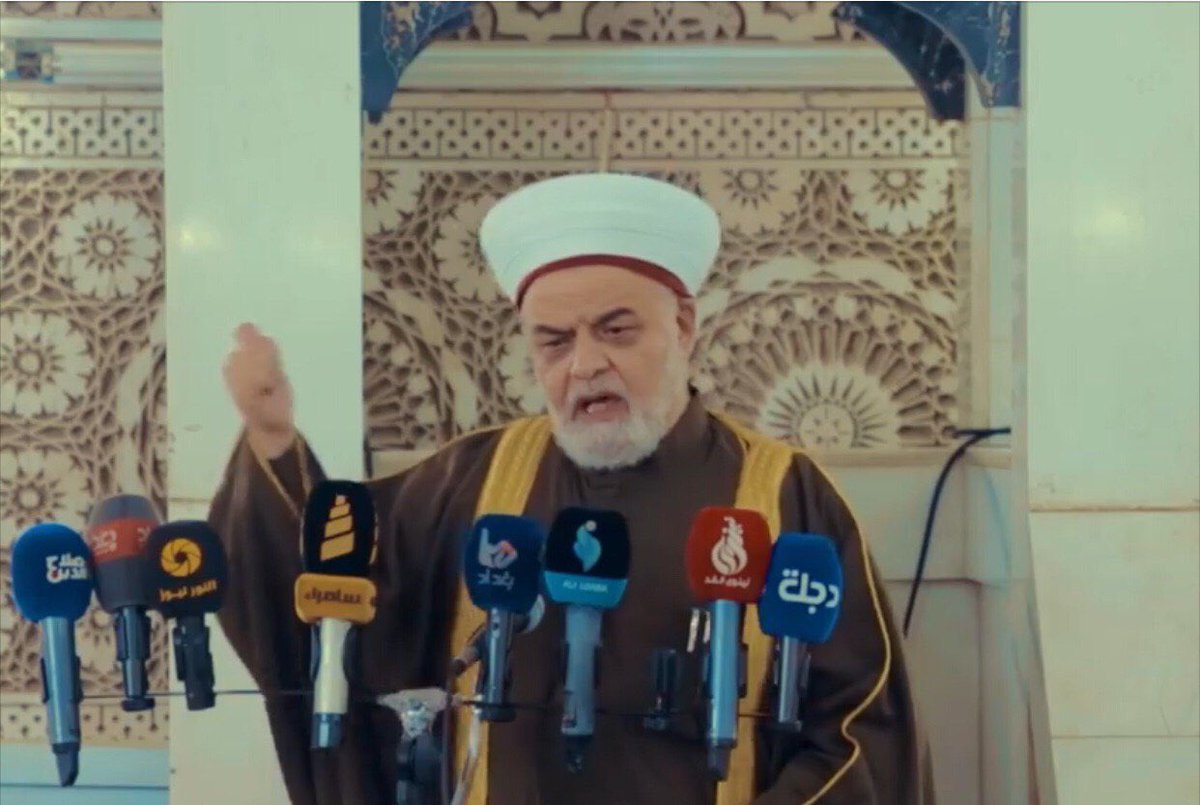MOSUL TIME RADIO
The preacher and imam of Abu Hanifa Mosque, Abdul Sattar Abdul Jabbar , strongly criticized the way the amendment to the Personal Status Law was drafted by members of the House of Representatives from the Shiite component .
In his Friday prayer sermon, Abdul-Jabbar touched on the amendment to the Personal Status Law, and said, “This amendment was formulated with a hateful sectarian spirit .”
He added, “Sectarian Shiite parliamentarians bargain with innocent people to gain narrow sectarian interests, and they do not deserve to be members of parliament. They prepared by amending the law two lists, one Sunni and the other Shiite, and then they say we are not sectarian,” adding that “because they were not able to approve the amendment to the Civil Status Law Personally, they opposed the general amnesty law .”
In this context, Member of Parliament Alia Nassif warned Amending the Personal Status Law, which grants legitimacy to authorized marriage, which helps in the spread of genetic diseases, deformities, and the human immunodeficiency virus, known as “ AIDS .”
This came in Nassif’s clarification regarding the two papers that were distributed in the House of Representatives, which included ideas for amending the Personal Status Law .
She said in a statement today, “The marriage of an authorized person is one point among many controversial points in this paper, as this marriage results in the presence of legitimate but legally registered children (without identity) .”
She added, “The authorized marriage does not require the spouses to undergo tests for immunological or hereditary diseases, meaning it helps in the spread of hereditary diseases and deformities in addition to AIDS , and if the husband abandons the wife and gets rid of proof, the doors to (murder under the pretext of washing away shame) will open,” she wondered. Will the official who concludes the marriage contract in exchange for a sum of money respect the waiting period, which is sacred, to prevent mixing of lineages ?
Nassif explained that “this law relates to the Iraqi family, and therefore we want clear texts that are not open to multiple interpretations,” noting: “These two papers, which she described as (two papers) “Al-Tasha ” are a group of scattered ideas ( scribbles ) intended to implicate the legislative institution, and therefore we reject what is stated in them completely and in detail .






